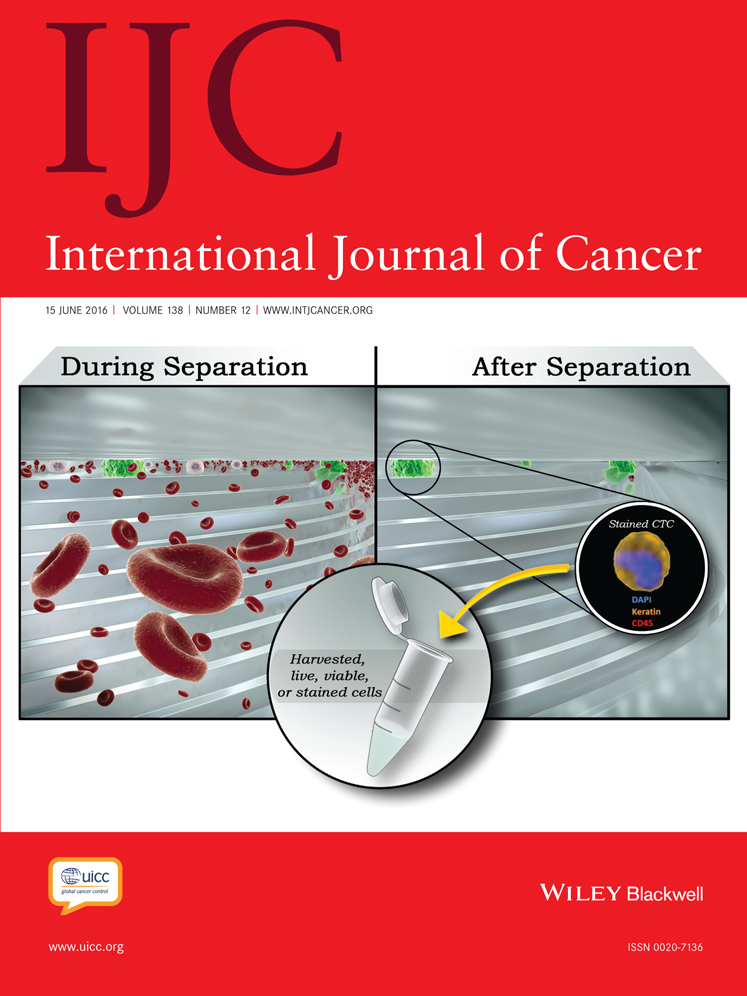Reproductive factors, hormone use and gastric cancer risk: The Singapore Chinese Health Study
Abstract
Gastric cancer incidence varies greatly worldwide, but is consistently twice as high in men than in women. The hormone-related factors hypothesized to be associated with lower risk of gastric cancer in women have not been fully explored in populations with a high background risk of gastric cancer. The Singapore Chinese Health Study (SCHS) is a prospective cohort study in which 34,022 of the participants enrolled between 1993 and 1998 were women between 45 and 74 years of age. Information on reproductive histories, hormone replacement therapy (HRT) and oral contraceptive (OC) use was collected through in-person interviews at baseline. As of December 31, 2013, 269 incident gastric cancer cases were identified. Multivariable-adjusted hazard ratios (HRs) and 95% confidence intervals (CIs) were calculated to evaluate gastric cancer risk associations. Older age at natural menopause (≥55 versus <45 years: HR = 0.50, 95% CI: 0.25–0.99), type of menopause (other versus natural: HR = 0.48, 95% CI: 0.27–0.87) and greater years of menstrual cycling (fourth versus first quartile: HR = 0.67, 95% CI: 0.46–0.96) were associated with a decreased risk of gastric cancer. Ever use of OCs and HRT was also associated with reduced risk of gastric cancer; the multivariable-adjusted HRs (95% CIs) were 0.40 (0.17–0.90) for use of HRT >3 years and 0.67 (0.47–0.94) for ever use of OCs, compared with never use. Reproductive factors associated with a longer window of fertility and the use of exogenous hormones were shown to reduce gastric cancer development in a cohort of Chinese women with a high background risk of gastric cancer.
Abstract
What's new?
Gastric cancer incidence varies greatly worldwide, but is consistently twice as high in men as in women. Hormone-related factors are hypothesized to be associated with lower risk of gastric cancer in women, but these factors have not been fully explored in populations with a high background risk of gastric cancer. Based on statistical analyses among a prospective cohort study of Chinese in Singapore, here the authors found that reproductive factors associated with a longer window of fertility and the use of exogenous hormones reduce gastric cancer development in a cohort of women with a high background risk of gastric cancer.




